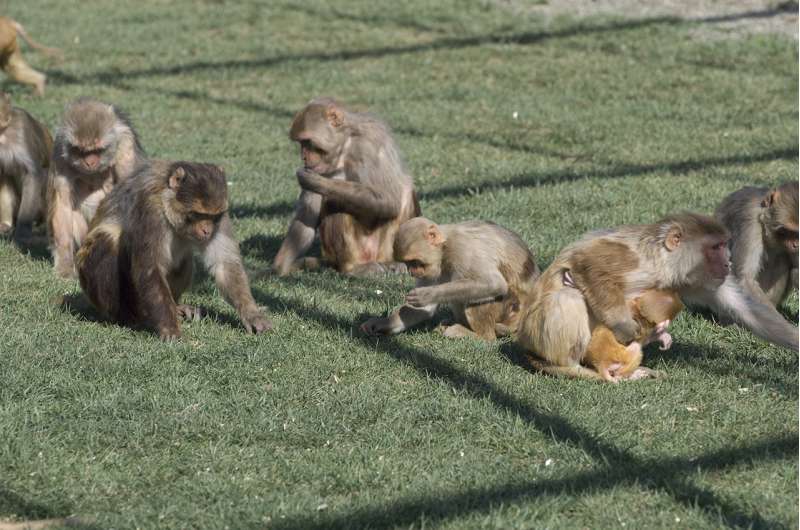Scientists find possible autism biomarker in cerebrospinal fluid

Autism diagnosis is slow and cumbersome, but new findings linking a hormone called vasopressin to social behavior in monkeys and autism in people may change that. Low vasopressin in cerebrospinal fluid was related to less sociability in both species, indicating the hormone may be a biomarker for autism.
A paper describing the research, which was led by scientists at the Stanford University School of Medicine and the University of California-Davis, will be published May 2 in Science Translational Medicine.
"Since autism affects the brain, it's really hard to access the biology of the condition to know what might be altered," said Karen Parker, PhD, associate professor of psychiatry and behavioral sciences at Stanford and the lead author of the new study. "Right now, the diagnosis is based on parents' reports of their children's symptoms, and on clinicians observing children in the clinic."
The study's senior author is John Capitanio, PhD, professor of psychology at UC-Davis.
Autism, a developmental disorder characterized by impaired social abilities, affects 1 in 68 U.S. children. Research has shown that early, intensive behavioral treatment is beneficial. Yet many children don't receive a timely diagnosis. A biological test, with a specific lab measurement indicating autism, could make diagnosis faster.
Difficult condition to study
Not only is the biology of autism difficult to study in people, but many research animals are unsuited to autism research, Parker said. For instance, mice often fail to show behavioral changes in response to gene mutations that cause autism in people.
So the researchers looked for autism biomarkers in rhesus monkeys, a species whose social capabilities are closer to those of humans. The monkeys had been raised by their mothers in social groups in a primate research colony at UC-Davis. From 222 male animals, the scientists selected 15 with naturally low sociability and compared them with 15 monkeys with naturally high sociability on several biological parameters.
The scientists measured levels of two hormones, oxytocin and vasopressin, in the monkeys' blood and in their cerebrospinal fluid, which bathes the brain. Both hormones are peptides implicated in a variety of social roles, including parental care and bonds between mates. Some prior studies have hinted that these hormones may also be involved in autism.
Monkeys in the less social group had significantly less vasopressin in their cerebrospinal fluid than monkeys in the more social group. These vasopressin levels accurately predicted the frequency with which individual monkeys participated in social grooming, an important social activity for rhesus monkeys. Vasopressin levels in blood were not different between the two groups. In a second group of 10 monkeys, whose cerebrospinal fluid was sampled four times over four months, the scientists showed that vasopressin levels in the fluid were stable over time.
The researchers also compared vasopressin levels in 14 boys with autism and seven age-matched children without autism. (Vasopressin levels were tested in the children's cerebrospinal fluid, which was collected via lumbar puncture for medical reasons; their families agreed to allow some fluid to be used for research.) Children with autism had lower vasopressin levels than children without autism, the study found.
"What we consider this to be at this point is a biomarker for low sociability," Capitanio said.
The researchers now want to test a larger group of monkeys for vasopressin levels to determine whether the hormone levels can distinguish monkeys with low social abilities from others with a wide range of social ability. And they want to explore whether low vasopressin could be detected before symptoms of impaired social ability emerge.
"We don't know if we see really low cerebrospinal fluid vasopressin before you see behavioral symptoms of autism," Parker said. "Ideally, it would be a risk marker, but we haven't studied that yet."
More information: K.J. Parker el al., "Arginine vasopressin in cerebrospinal fluid is a marker of sociality in nonhuman primates," Science Translational Medicine (2018). stm.sciencemag.org/lookup/doi/ … scitranslmed.aam9100
















